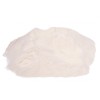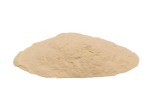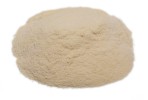Understanding Collagen and Its Importance for Joint Health
Collagen is a crucial protein that plays a vital role in maintaining joint health and overall well-being. It is the most abundant protein found in our bodies, particularly in our connective tissues, including tendons, ligaments, and cartilage. Understanding the importance of collagen and its impact on joint health can help us take proactive steps towards maintaining strong and flexible joints.
 Collagen provides structure and support to our joints by forming a network of fibers that hold them together. It acts as a cushion between bones, allowing for smooth movement and reducing friction. As we age, however, collagen production naturally declines, leading to decreased joint flexibility and increased risk of joint-related issues.
Collagen provides structure and support to our joints by forming a network of fibers that hold them together. It acts as a cushion between bones, allowing for smooth movement and reducing friction. As we age, however, collagen production naturally declines, leading to decreased joint flexibility and increased risk of joint-related issues.
By promoting collagen production through various means such as diet, exercise, and supplementation, we can support healthy joints. Consuming foods rich in collagen-building nutrients like amino acids (found in proteins), vitamin C (which aids collagen synthesis), and antioxidants (which protect against collagen breakdown) can help maintain optimal joint health.
Additionally, regular physical activity helps stimulate collagen production by increasing blood flow to the joints. Exercises that target the muscles surrounding the joints can improve their stability and reduce stress on the connective tissues.
Understanding how collagen contributes to joint health empowers us to make informed choices about our lifestyle habits. By prioritizing activities that promote collagen production and consuming a balanced diet rich in essential nutrients for collagen synthesis, we can proactively support our joint health for years to come.
Type I and III Collagen: The Most Abundant and Versatile Type of Collagens
Type I collagen is the most abundant type of collagen in the body. It is found in numerous connective tissues, including the skin, bones, tendons, and ligaments.
One of the primary functions of type I and type III collagen is to provide structural support to the skin. It forms a dense network of fibers that contribute to its elasticity and firmness. This collagen type helps maintain skin hydration and prevents wrinkles and sagging, making it essential for maintaining youthful-looking skin.
In addition to its role in skin health, type I collagen also plays an important role in bone health. It provides the framework upon which minerals like calcium are deposited, giving bones their strength and rigidity. Without sufficient type I collagen, bones may become weak and prone to fractures.

Furthermore, type I and III collagen is responsible for providing tensile strength to tendons, which connect muscle to bones. It helps absorb forces during movement and contributes to overall joint stability. Type III collagen has also demonstrated a role in providing strength and flexibility to blood vessels. Athletes and individuals involved in physical activities rely on healthy levels of this collagen type for optimal tendon function.
Type I collagen can also play a role in helping wounds heal. Collagen forms a scaffold at the site of injury that supports cell migration and tissue regeneration. This process promotes efficient wound closure while minimizing scar formation.
In conclusion, as the most abundant and versatile form of collagen, type I collagen plays a major role in various aspects of our body's health. From supporting skin elasticity to maintaining bone strength, enhancing tendon function to facilitating wound healing – this protein proves essential for overall well-being.
Type II Collagen: The Key Component for your Joints and Cartilage
Type II collagen can play a crucial role in maintaining joints and cartilage. It is the main structural protein found in cartilage, providing strength, flexibility, and support to our joints. It helps to maintain the integrity of the joint by supporting the production of new cartilage cells and reducing inflammation. This can be particularly beneficial for individuals suffering from osteoarthritis, a degenerative joint disease characterized by the breakdown of cartilage.
Research has shown that type II collagen supplementation can help alleviate symptoms associated with osteoarthritis, such as joint pain, stiffness, and swelling. It has also been found to support cartilage regeneration, helping to restore damaged or worn-out cartilage.
Furthermore, type II collagen has been studied for its potential role in preventing joint deterioration and promoting overall joint health. Regular consumption of type II collagen may help protect against age-related wear and tear on joints, keeping them strong and flexible.
Foods and Supplements That Promote Collagen Production for Joint Health
As we age, our natural collagen production decreases, leading to joint stiffness and discomfort. Collagen rich foods and Collagen joint food products have gained popularity as a natural remedy for arthritis symptoms.
 When it comes to collagen-rich foods for joints, incorporating sources such as bone broth, fish with high omega-3 fatty acids like salmon or sardines, leafy greens like spinach and kale, citrus fruits rich in vitamin C like oranges and strawberries, and nuts like almonds or walnuts can be beneficial. These foods provide essential nutrients that support collagen synthesis in the body.
When it comes to collagen-rich foods for joints, incorporating sources such as bone broth, fish with high omega-3 fatty acids like salmon or sardines, leafy greens like spinach and kale, citrus fruits rich in vitamin C like oranges and strawberries, and nuts like almonds or walnuts can be beneficial. These foods provide essential nutrients that support collagen synthesis in the body.
In addition to dietary sources, collagen supplement products have gained popularity for their potential benefits in promoting joint health. Collagen supplement products are available in various forms such as powders, capsules, or liquids. They often contain types I and III collagen derived from animal sources like bovine or marine collagen.
When considering the use of collagen for joint health and arthritis relief, it is important to choose high-quality products from reputable brands. Look for products that contain type II collagen, which specifically targets joint health.
It's important to note that while these foods and supplements may support collagen production for joint health, individual results may vary. It's always advisable to consult with a healthcare professional before starting any new dietary regimen or incorporating supplements into your routine.
By incorporating collagen-rich foods into your diet and considering the use of collagen supplements under professional guidance, you can potentially support your joint health by promoting collagen production in your body.
Conclusion: Incorporating Different Types of Collagen into Your Diet for Optimal Joint Health
Incorporating different types of collagen into your diet can have a significant impact on your joint health. Collagen is a protein that plays a crucial role in maintaining the health and integrity of our joints. By including various sources of collagen in your diet, you can support optimal joint health and potentially reduce the risk of joint-related issues.
There are several types of collagen found in our bodies, with the most common ones being type I, II, and III. Type I collagen is abundant in our skin, tendons, and bones, while type II collagen is primarily found in cartilage. Type III collagen provides structural support to organs and blood vessels.
To ensure you are getting a variety of collagens in your diet, consider incorporating foods such as bone broth, fish with skin and bones (like salmon), chicken or beef skin, gelatin-rich foods like jelly or gummies made from grass-fed sources. Additionally, you may also opt for dietary supplements that contain specific types of collagen to target joint health.
Remember that maintaining a balanced diet rich in nutrients is essential for overall joint health. Alongside incorporating different types of collagen into your diet, it's important to engage in regular exercise and maintain a healthy weight to further support optimal joint function.
Consulting with a healthcare professional or nutritionist can provide personalized guidance on incorporating collagens into your diet based on your specific needs and goals. By taking proactive steps to include various sources of collagen into your daily routine, you can promote optimal joint health and potentially experience improved mobility and comfort.




